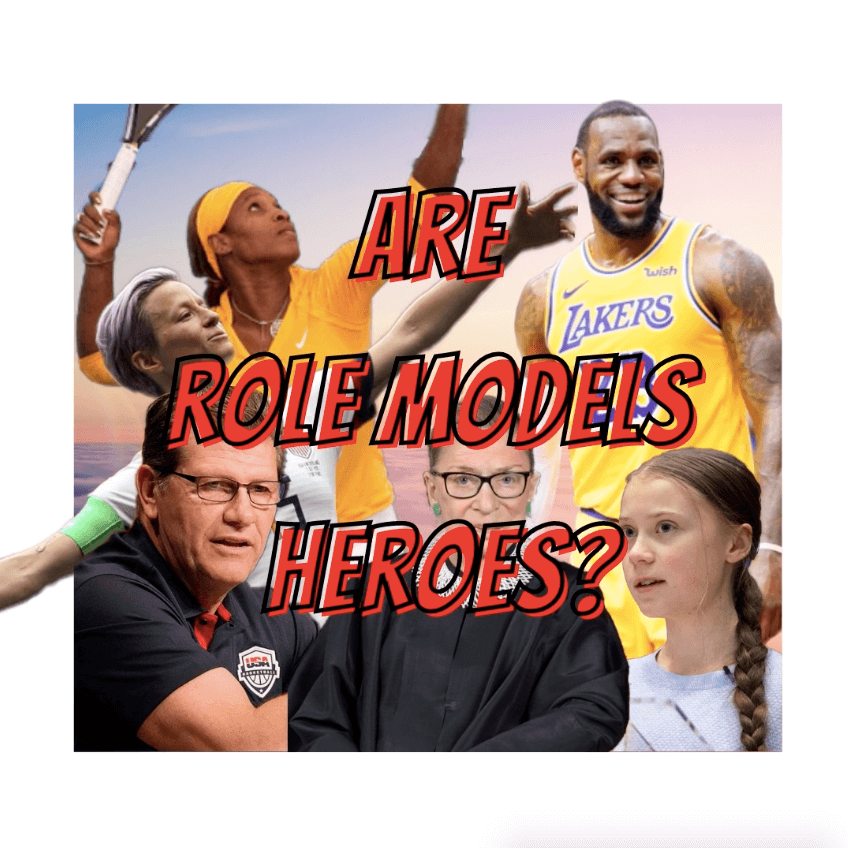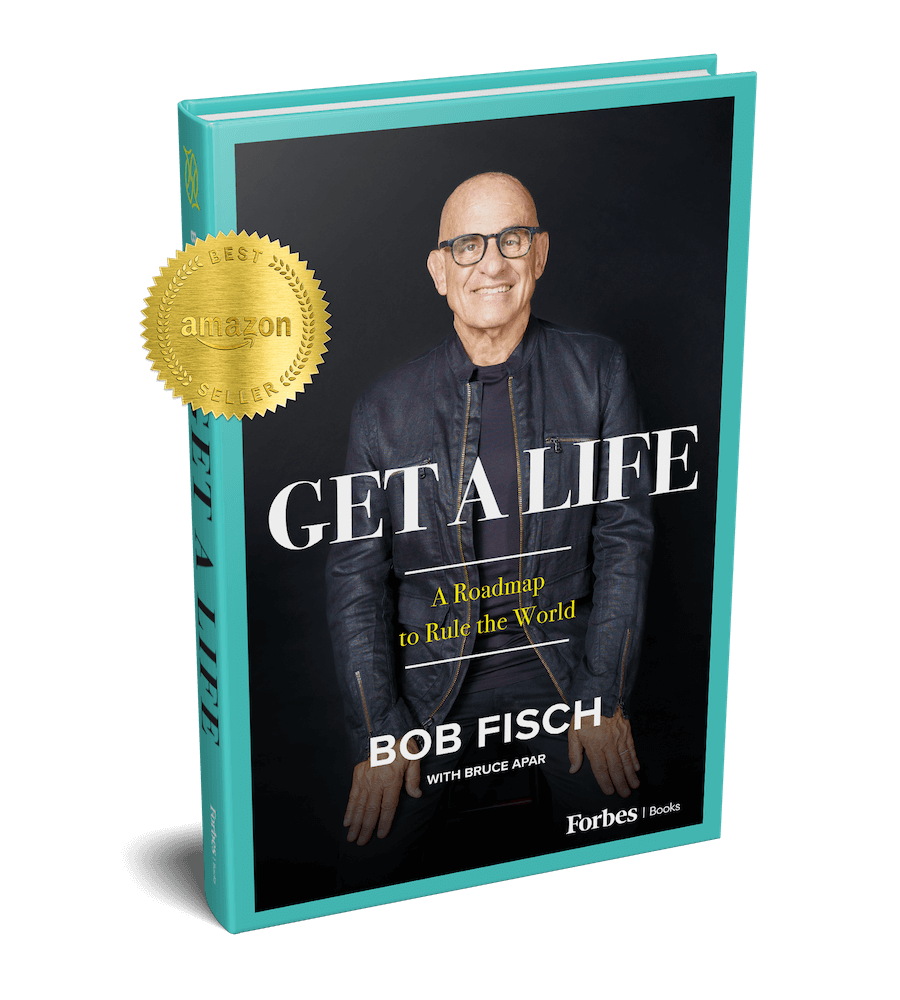How about that Tom Brady. The legend of the star athlete who has won more championships than any other quarterback just keeps growing. This year he added a seventh Super Bowl victory to his collection.
Number seven came after he left a perennially dominant powerhouse to join a mediocre also-ran. He single-handedly transformed the once-lowly Tampa Bay Buccaneers into the new New England Patriots. That feat won Brady the kind of awestruck idolatry usually reserved for the gods of Mount Olympus.
Has there ever been a more heroic player in the National Football League — or any sport?
That depends on your definition of hero.
Is a sports hero on the same level as military heroes, who display death-defying valor to protect us from deadly enemies?
Are sports heroes like the essential, front-line workers who have been risking — and sacrificing — their own lives to save the lives of others?
In the School of Fisch Dictionary, a hero — whether in sports or any other walk of life — is not defined simply by putting up impressive numbers or winning trophies.
ROLE MODELS
We don’t have to agree on who’s a sports hero, but we probably can agree on this … in the purest sense of the word, a hero should be a role model. A hero should be a person of unimpeachable character whom others respect, admire and want to emulate. It has very little to do with how athletically talented you might be.
In Tom Brady’s case, he has taken a lot of heat for his health and wellness brand TB12 getting a nearly $1 million Covid-19 federal loan — which is intended for small business owners trying to survive the pandemic. Shortly afterwards, Brady splurged on a multi-million-dollar yacht.
If your personal character isn’t at least as upstanding as your athletic abilities are outstanding, then being the Greatest of All Time (G.O.A.T.) — as TB is commonly called — still doesn’t give you a pass.
In sharp contrast to the God of the Gridiron is the King of the Court, basketball’s LeBron James (LBJ), of the Los Angeles Lakers. He’s one of the four or five greatest ever to pass, shoot or defend the ball.
THE BURDEN OF HEROISM
Having LeBron’s brand of fortune and fame — and game — puts an athlete in a position to be a hero. But it doesn’t automatically make them a hero. There’s a difference. Not all of the greats accept the challenge or the burden of heroism. LeBron James embraces it with the same passion and fearlessness that he brings to every minute of every game.
Like Brady, LBJ’s statistics are stratospheric. Like Brady, James has won league titles with more than one team. Like Brady, LeBron’s presence on almost any team instantly makes it a contender.
Unlike Brady, LeBron James has a social conscience that inspires tens of millions. His has been one of the most influential and strongest voices in the ongoing fight for racial justice.
For the 2020 election, he helped form a voting rights group to fight voter suppression. Through the LeBron James Family Foundation, he founded a public school in Ohio that has quickly improved test scores for at-risk grade school students.
His big-hearted philanthropy and unmatched leadership qualities — in the court of public opinion, as well as on the basketball court — make LeBron James my kind of slam-dunk hero.
‘HAMMERIN’ HANK’
I started thinking about what makes a sports star also a hero after the death earlier this year of Hank Aaron.
Watching the tributes to the man who many recognize as baseball’s all-time “Home Run King,” I was struck less by his career numbers than by his courage, his decency, his determination, and his humility.
Like Major League Baseball’s first African-American player, Jackie Robinson, Aaron had to endure unspeakable hatred and bottomless ignorance from racists, including death threats, which only became more vile the closer he approached the beloved Babe Ruth’s career home run record. And still, he persisted.
Is “Hammerin’ Hank” Aaron — whose 2010 biography, by Howard Bryant, is titled “The Last Hero” — a role model for the ages? He touches all the bases.
Why is it that when we speak of “sports heroes,” it almost never is to describe a female athlete?
Tennis queen Serena Williams turns 40 this year. Last I looked, she was still competing as the highest levels of the sport, advancing to the finals of Grand Slam majors like the Australian Open, after playing professionally for a quarter-century! As long as she continues to wield a racquet, she will stay one of the most feared competitors in any sport.
CULTURAL ICON
As with LeBron James, Serena has been a major spokesperson for social change, is a tireless advocate of many charities, and has inspired young people of color to take up tennis. She is as much a cultural icon as a sports figure.
Williams’s grit is legendary, having come back from multiple, serious injuries to compete at the most elite level. That she is a unique role model for female athletes was proven beyond a doubt in 2017 when she won the Australian Open … while two months pregnant.
With sister Venus, they are the first black women to have an ownership stake in an NFL team, the Miami Dolphins.
Is Serena Williams a role model? Game, set, match!
One of my all-time favorite sports figures is a man who coaches collegiate female athletes.
Geno Auriemma is far from a household name, such as iconic basketball coaches from a different era — John Wooden of UCLA and Red Auerbach of the Boston Celtics.
Wooden’s Bruins won 10 NCAA titles in a 12-year span, seven consecutively. Auerbach’s Celtics won nine NBA titles, eight in a row. It’s hard to imagine any college or pro team reaching, let alone surpassing, those pinnacles of perfection.
UNBEATABLE HUSKIES
It’s no stretch to call Coach Auriemma of the University of Connecticut Huskies the Wooden and Auerbach of women’s basketball. His record over 36 years is a stunning 1,105 wins, with 143 losses. That means his teams’ average season’s record is 30-4.
Auriemma is more than the sum of his team’s eye-popping success ratio, though. He is a master motivator who helps female athletes dig deep to summon confidence they didn’t know they had, and to succeed beyond anything they thought possible. Huskies’ players leave his program as leaders who go on to great success in business and life. His mission is about much more than winning games.
The lesson we learn from LeBron James and Hank Aaron and Serena Williams and Geno Auriemma is that while it’s fine to cheer sports stars, especially those who play for your home team, we shouldn’t confuse that adulation with hero worship.
FEW TRUE HEROES
In fact, I would argue that there are very few sports figures who have earned the right to be called heroes in the truest sense of the word.
What about the new generation of elite athletes, like Patrick Mahomes of the Kansas City Chiefs, or James Harden of the Brookly Nets? Heroes — or merely your run-of-the-mill superstars? They are in their prime, with a long way to go, so it is too soon to tell.
What we do know now is that Millennial fans place a premium on social justice and the environment and other global issues. It stands to reason that they will have more respect for sports talent who use their celebrity to help others move the ball forward.
Can a famous athlete be a hero without being a superstar? I think the answer is yes. It’s the ones who visit terminally ill children in hospitals. It’s the ones who quietly give back to their communities, and without the fanfare that higher-profile athletes can command from the media.
We never seem to be lacking for superstar athletes in all sports. But we always could use more heroes — whether it’s in sports or any other part of life.

